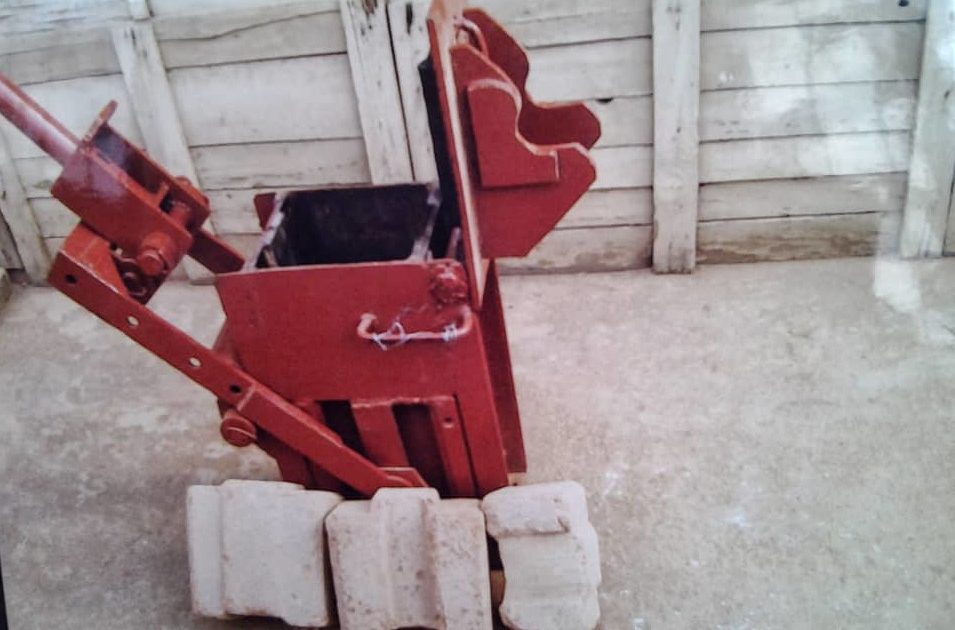QUESTIONS/ANSWERS ON THE USE OF LATERITE BRICKS FOR LOW COST HOUSING.
QUESTIONS/ANSWERS ON THE USE OF LATERITE BRICKS FOR LOW COST HOUSING.
- August 5, 2020
- Posted by: Bolyn
- Category: Low cost construction, Manual brick presses, Stabilized bricks, Standard bricks

1]. What is Laterite soil?
Answer- Laterite soil is a type of soil found in the tropical countries of the world and it is found on the land as deposits in some locations from where the operators of heavy equipment go to dig it up and carry it to the site where it is to be used for construction purposes. Laterite soil contain gravel, sand, clay and silt. It is useful for lots of construction purposes among which is Laterite brick making.
2]. Where can I find Laterite soil, because I am not very sure it is available in my town/village?
Answer- Laterite soil is available on most land in the tropics below the top soil and can be gotten from your dug up pit during the construction of Septic tanks, Water wells and as deposits that can be moved from borough pits to all locations where they are needed.
3]. How can I identify good Laterite soil for my brick making?
Answer-My first advise to people needing Laterite soil for brick making is that they allow an experienced person to guide them in choosing the good Laterite soil. However. most land soil below the top soil that exit at about 3feet[1.o metre] from the ground surface are good for brick making. A simple test to determine if a soil will be good for brick making is called Cigar or Pencil test and can be performed by individuals. Simply collect some handful soil and add a little water with which to make a pencil or cigar like object by rolling the wetted materials between your 2two palm?
4]. What is the life span of a house built with Laterite soil and other local materials?
Answer- A house is expected to last the life time of the owner, houses built with locally sourced materials are not an exception. Kindly note that a house built with Laterite soil bricks and other local materials that obey the rules and regulations 0f the technology of housing construction in all the critical areas of the house such as in the foundation,wall damp proofing, external wall protection and adequate roof overhang will last a life time with minimal periodical maintenance.
5]. Can I add Cement into my Laterite soil to make my bricks?
Answer- Yes, the addition of Cement into Laterite soil for brick making is a plus to the strength and water permeability of the bricks. Those who have the means are advised to add Cement into their soil for better brick making.
6]. Can I fire my Laterite bricks after making them in a kiln or an oven?
Answer- It is not advisable to fire your bricks in an oven or kiln. Please note that the sun is capable of drying the bricks and it is wise to adopt this available energy source, that is free and abundant in the tropics?
7]. What is the difference between Laterite soil and Clay soil?
Answer- Laterite soil is a soil found easily on the land and it is cheap. It contain a little clay that is enough to combine with the other particles of gravel and sand to be used to mold bricks. Clay soil exist as a deposit in some locations where users have to locate their industries because it is required that they work on the materials before firing it to make bricks, this process take longer time. It is labor intensive.
8]. What if I do not add Cement into my Laterite soil for my brick making, what overall effects can this have on the house?
Answer- The non addition of Cement into your Laterite soil to make the bricks for your house will safe you some money that can be used for other essential materials in the house constrution, however you cannot make non Cement bricks during the rains when there will not be enough sunshine to dry your bricks. A non Cement bricks house require you to eventually plaster the walls of such house.
9]. We have seen that you parade several types of brick making presses, which of these are you recommending as the best?
Answer- All Bolyn constructions company limited designed and fabricated machines work on the same Cinva ram principle, although, the technology behind them differ e.g. Standard bricks, Liquid mortar interlocking bricks, Dry stacked interlocking bricks, Floor paving bricks and Super bricks. We will be recommending our multi purpose brick press of either single or double brick/s at a time to any average person for the reasons that it can make varieties of bricks simply by changing the pallets supplied with the brick presses. The bricks made by them are also the conventional ones that most Masons and Bricklayers are used to in their building practice.
10]. Please tell us more about the Interlocking bricks that do not require mortar to join the wall?
Answer- The interlocking bricks that was introduced about 30yeaers ago in Nigeria can be used in a dry stacked form called no mortar to join the wall. This type of construction is good for insulated walling because it is of 9inches[230mm] wall thickness. The bricks are joined at the foundation, window, door, lintel and roofing area. There is a saving in the reduction of materials that ought to have been used for mortar joining the walls if conventional bricks are used. Over 70% of the walls constructed with this type of bricks require no mortar joining. This bricks can be used to construct simple houses by the semi skilled laborers.
To be continued.

great content
Great questions. will look forward to the details.
Ok, please.
This is educative! 👍 💪 💯 🌹
THANKS AND REGARDS.